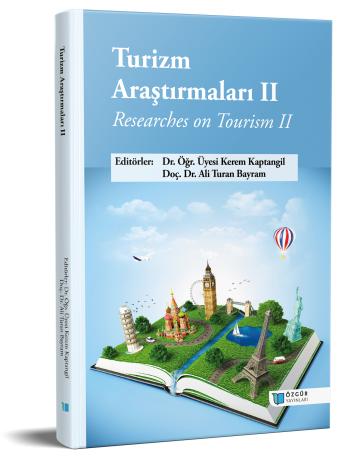
Interdisciplinary Perspective on the Interaction between Archaeology and Tourism
Chapter from the book:
Kaptangil,
K.
&
Bayram,
A.
T.
(eds.)
2023.
Researches on Tourism II.
Synopsis
Archaeology plays a crucial role in contributing to tourism by synthesizing its contributions with history and culture, thereby imbuing tourist destinations with meaning and depth. Archaeological excavations offer unique opportunities for tourists to uncover traces of the past, allowing them to embark on distinctive exploration experiences. In this context, visitors not only examine ancient artifacts on a physical level but also immerse themselves in a rich historical and cultural context, enhancing their overall experience. The increased tourist potential of archaeological sites enhances the attractiveness of a destination, ultimately attracting more visitors. This phenomenon contributes to the economic development of the region, revitalizing the local economy. Archaeology goes beyond offering tourists mere sightseeing opportunities; through guided tours and educational programs, visitors gain in-depth knowledge about the region's history and culture. This, in turn, not only enriches their holiday experiences but also increases the potential for conscious reflection upon returning home.
In conclusion, from the perspective of archaeology, tourism amalgamates the culture, history, and economy of a region, providing tourists with a rich and multifaceted experience. However, maintaining this delicate balance is of paramount importance to ensure the sustainable management of archaeological wealth and the transfer of these riches to future generations. In this context, the relationship between archaeology and tourism should establish a crucial equilibrium point, addressing significant aspects such as the effective preservation of cultural heritage and the enhancement of the quality of the tourist experience. The sustainable management of archaeological sites, protection against tourist influx, and conscientious guidance through educational programs are pivotal elements in achieving this equilibrium. Additionally, collaboration and communication between local communities, civil society organizations, and the tourism sector are essential to direct the impact of tourism and ensure the preservation of archaeological areas. This approach facilitates the sustainable development of tourism while preserving the value of archaeological heritage for future generations.

